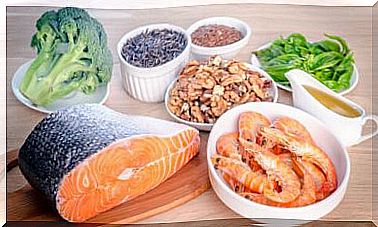Gluten Intolerance: What You Should Know
Celiac disease and gluten intolerance are related, but at the same time they are very different. The basis of the problem is gluten, but there are nuances. What should you know about it?
The immune system of people with celiac disease reacts aggressively when gluten, a protein present in cereals, circulates through the digestive tract. Therefore, celiac patients must follow a strict gluten-free diet for life. Meanwhile, gluten intolerance is not an autoimmune reaction, although the sufferer remarks an improvement by restricting said protein from the diet.
What is gluten?
Gluten is a glycoprotein found in commonly consumed cereals such as wheat, barley, rye or oats. It is also present in other cereals that are consumed less frequently, such as spelled (also called wild wheat) and triticale (a mixture of wheat and rye). It is a nutrient capable of interacting negatively with the digestive system of some people, according to a review published in the journal Nutrients.
In turn, gluten is made up of two other glycoproteins: gliadin and glutenin. Gluten is responsible for the elasticity of the flour dough, which allows the bread to obtain volume, together with the fermentation, as well as the elastic and fluffy consistency of the baked doughs.

Gluten intolerance
Much more numerous than celiac patients are patients with gluten intolerance. Is it possible for the body to react to gluten without the need for us to be celiac? Indeed, many people say that not taking gluten they feel much better, even though they do not follow a strict diet.
Their duodenal villi are usually strictly normal, but eating gluten-containing foods makes them sick and causes:
- Diarrhea.
- Abdominal swelling
- Acidity.
- Migraines
For patients with intolerance to gluten, when they eat it they feel bad, but without damaging the digestive tract. Celiac sufferers may or may not have discomfort, but the truth is that their intestines progressively deteriorate, and they have no other option but to do without gluten altogether, strictly and for life. Hence, periodic reviews are so important.
What would be the treatment?
In the specific case of gluten sensitivity, and given that a specific biological marker of this disorder has not been identified, the treatment would help to confirm this diagnosis and consists of elimination diets with subsequent reintroduction, observing the clinical changes that occurred in both periods .
The use of probiotics is postulated as a promising therapy against celiac disease, especially at the level of prevention. Some experts, based on current scientific articles, defend that these bacteria may also be able to improve the symptoms associated with protein intolerance.
Gluten foods to avoid and your options

The foods that a person with gluten problems should avoid are:
- Wheat, barley, rye, spelled, kamut.
- Everything that is made with the above cereals, such as: bread, flour, semolina, pasta.
- Think that there are many commercial products in which it is used to give them texture: bakery and pastry products, ice cream, chocolate, pizzas, cheese, sausage, pâté, canned food, beers. You have to look closely at the labels.
To avoid deficiencies, the aforementioned cereals must be replaced by other gluten-free ones, but with a similar contribution of carbohydrates.
- Rice, corn, millet, sorghum, quinoa, buckwheat, amaranth, cassava.
- For the same reason, potatoes and legumes should also be included in the menus.
The gluten-free diet should not be done to lose weight
- The idea that the gluten-free diet is useful for weight loss has become popular, but that is not the goal. Removing gluten from the usual diet should respond to health issues, and studies have also shown that there are gluten-free products that can contain more trans fat or sugar to improve textures.
- By eating gluten-free (if your body has a problem with this protein) you may feel less bloating and heaviness but this is not synonymous with weight loss as a direct result of the withdrawal of this nutrient.
Gluten must be restricted in situations of intolerance
Gluten-intolerant patients can tolerate foods with this glycoprotein, but they may have digestive discomfort. For this reason, it is often advised to avoid gluten sources as much as possible, opting for those foods labeled as protein-free.









